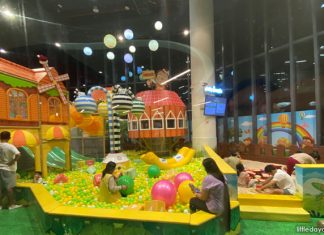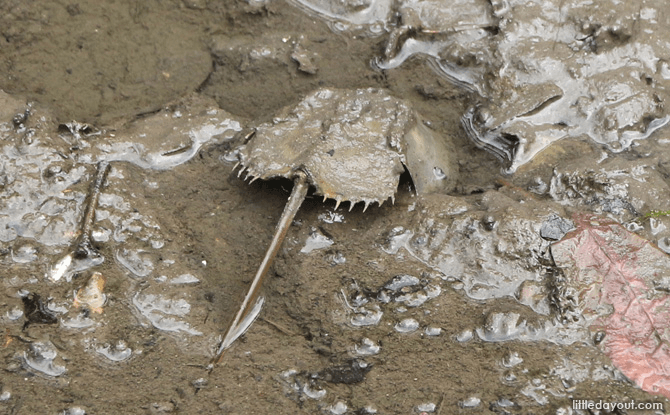
“My favourite marine animals are horseshoe crabs. Let’s go look for them.” was the sentence that triggered off our journey northwards toward the Sungei Buloh mudflats.
Created in 2014 as part of the Sungei Buloh Wetlands Reserve Extension, the Sungei Buloh mudflats are located closer to the original Sungei Buloh Wetland Reserve area where the Tidal Ponds can be found. The fastest way to access the mudflats is from the Sungei Buloh Wetlands Reserve’s Neo Tiew car park.
From the car park, follow the signs and after a three-minute walk, you will arrive at the Sungei Buloh mudflats.
Welcome to the Mudflats
Year-end Holiday Camps: Discover Fun and Exciting Camps for Kids; Book Early
Dec Fun: Get the Best Ideas for the School Holidays
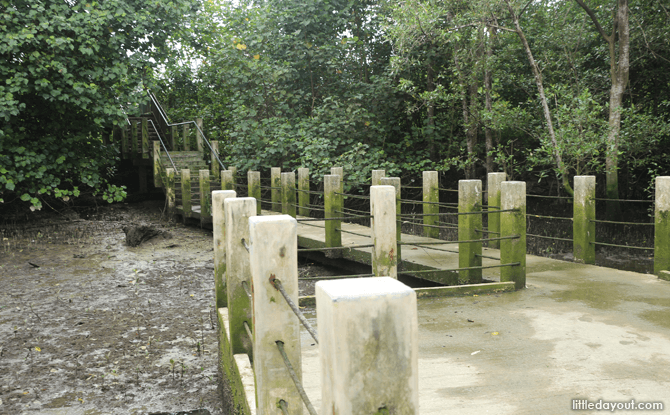
For those who find the boardwalk too far above the mud, a flight of stairs lead down to the actual mud level. From there, you can get a close-up look at the creatures found at the Sungei Buloh mudflats.
A rope balancing bridge connects the boardwalk to a platform above where you can find out more information about the wildlife found in the mudflats.
Life at the Sungei Buloh Mudflats
The Sungei Buloh mudflats are teeming with life – and if you pause to take a closer look, you will be astonished by what you can find there.
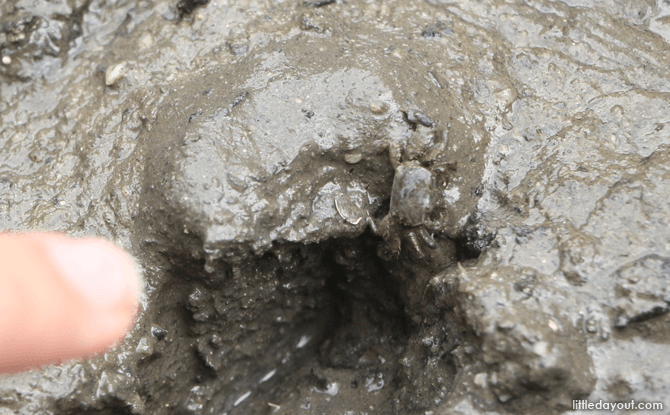
From the boardwalk, you will be able to spot tiny mud crabs scurrying around. Watch as they dart in and out of tiny burrows in the mud, going about their business.
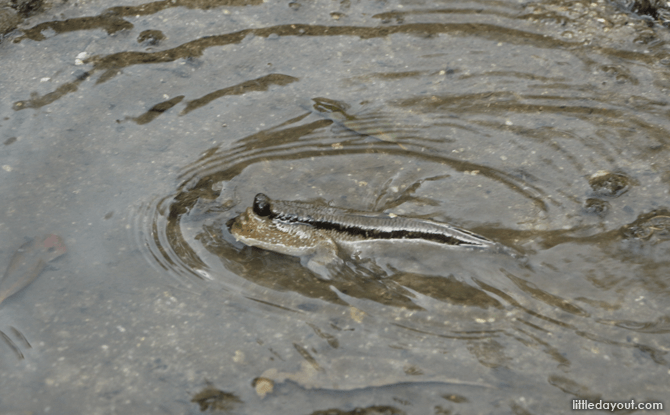
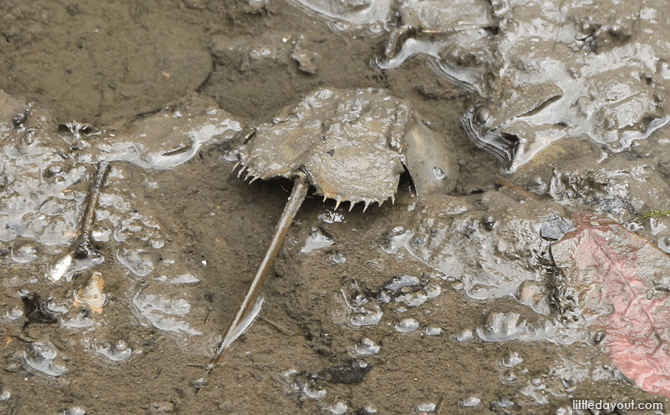
Despite their name, horseshoe crabs are not related to crabs. As an anthropod, they are more closely related to spiders than crustaceans. They have a hard shell and a long rigid tail.
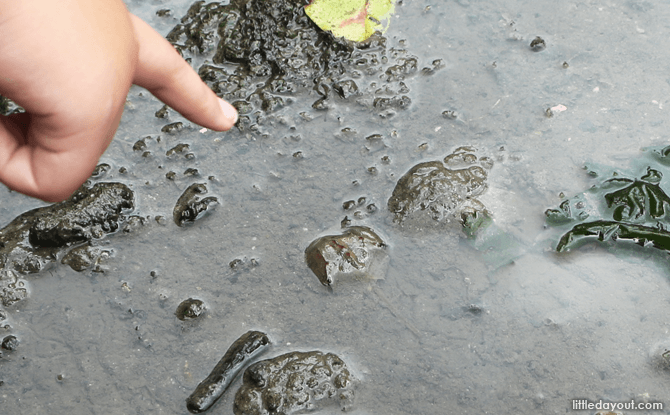
The horseshoe crabs we saw at the Sungei Buloh mudflats were tiny ones. With their small size, dark brown colour and caked in mud, they blended in perfectly with the mudflat’s surface.
What gave them away was their long tail which left behind a trail as they moved along the surface of the mud.
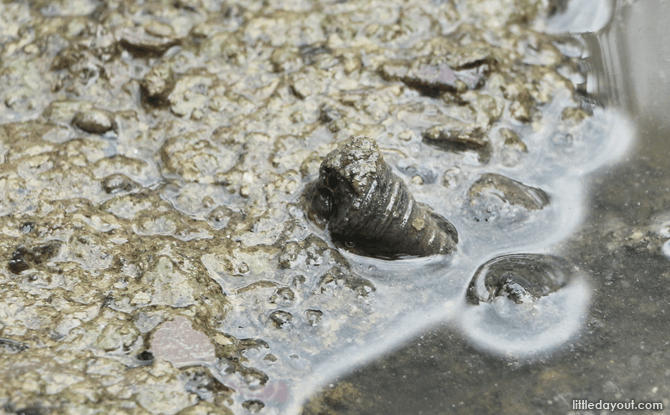
It was a simple pleasure trying to spot the creatures hiding in the mud and observing their activities.
Croc Sighting (Not at the Mudflats)
That was not the end of the adventure at Sungei Buloh Wetland Reserve. While walking along the Main Bridge connecting the Wetland Centre to the Buloh Tidal Ponds, we were fortunate enough to see this creature in the Buloh Besar River!
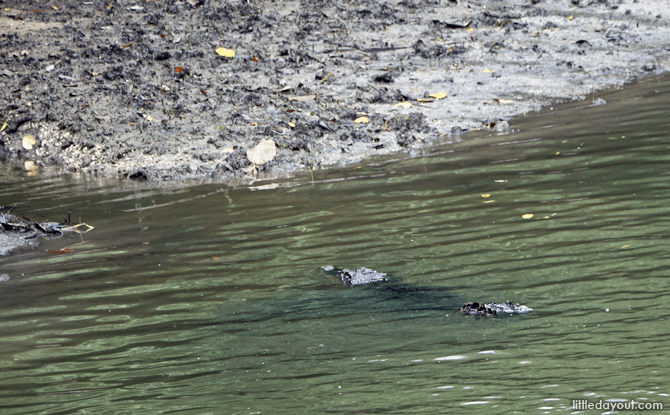
That was the icing on the cake for a wonderful trip to Sungei Buloh and its mudflats.
And, we were thankful to have found a place where we could see horseshoe crabs in Singapore.


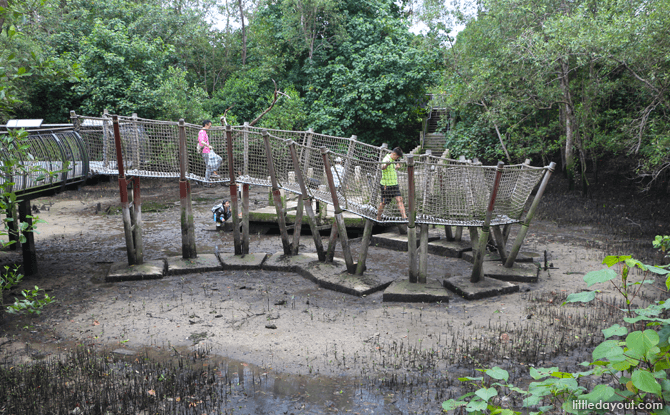
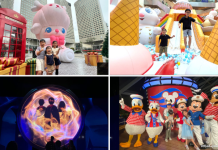


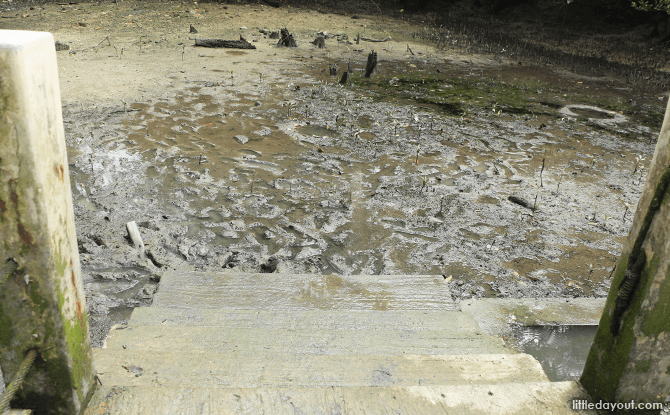
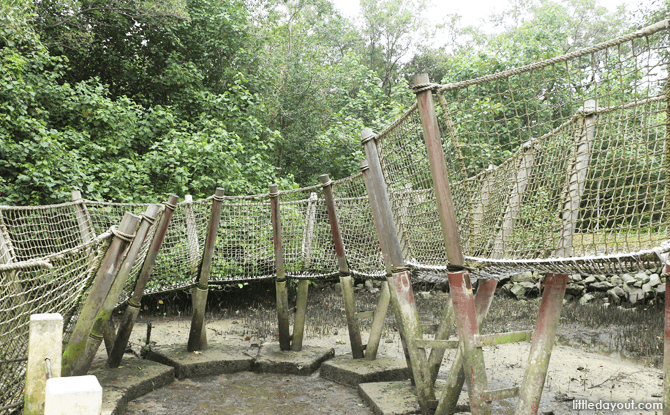
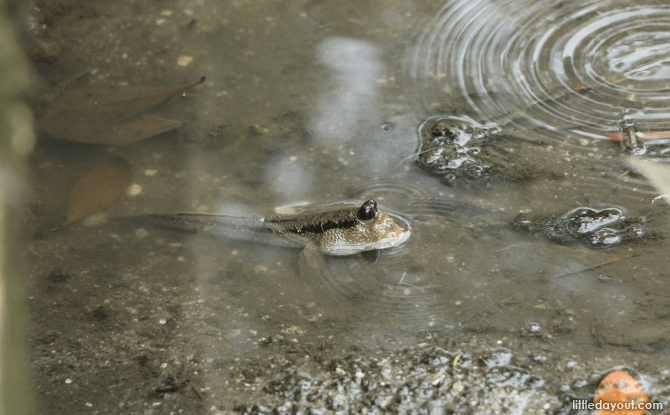
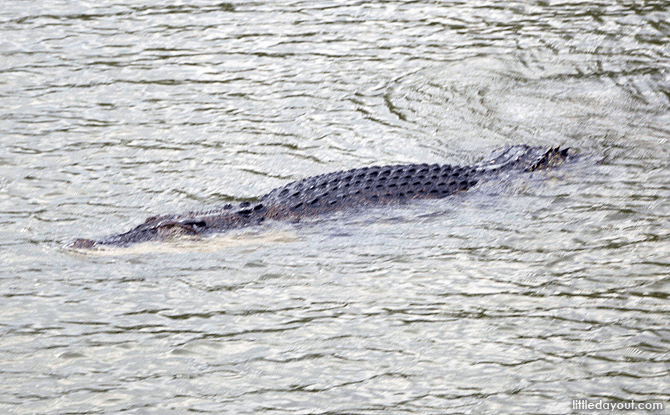

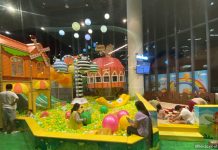
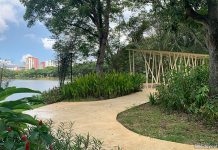

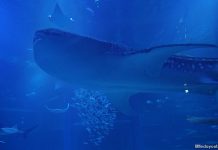

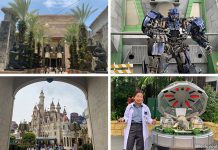

![[Updated] 53 Best Free Outdoor Playgrounds In Singapore For Kids 50 Best Free Outdoor Playgrounds In Singapore For Kids](https://www.littledayout.com/wp-content/uploads/outdoor-playgrounds-01-218x150.jpg)



